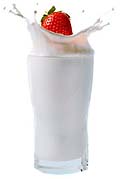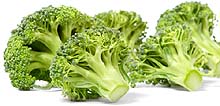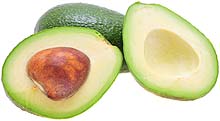Healthy Eating for the Later Years

Good nutrition is important throughout all stages of our life — childhood, adolescence, adulthood and the later years. Becoming older, you may find that you experience some difficulties with eating and digestion. This information will help you with food choices to overcome those difficulties.
Some changes you may experience:
- Difficulty chewing and swallowing, because of loss of teeth, having dentures fitted or loss of saliva
- Decrease in smell and taste which may cause a loss of appetite
- Sensitive digestion — some foods may cause more flatulence and indigestion
- Constipation
- Slow wound healing
- Weight gain or weight loss.
Guidelines for achieving a healthy diet:
Eat smaller meals and have small snacks during the day
This will help you if you don’t have a good appetite.
Eat a variety of foods
It’s important to keep your meals different and interesting, so that you don’t get bored. This way you are more likely to get all the nutrients that you need on a daily basis.
Protein is important
Protein is an important component of every cell in the body. Hair and nails are mostly made of protein. Your body uses protein to build and repair tissues. You also use protein to make enzymes, hormones, and other body chemicals. Protein is an important building block of bones, muscles, cartilage, skin, and blood.
Along with fat and carbohydrates, protein is a “macronutrient,” meaning that the body needs relatively large amounts of it. Vitamins and minerals, which are needed in only small quantities, are called “micronutrients.” But unlike fat and carbohydrates, the body does not store protein, and therefore has no reservoir to draw on when it needs a new supply.
Some proteins, such as steak, can be difficult to eat and digest. Choose softer proteins such as boiled or poached eggs, minced beef, grilled fish, roast chicken, sweetmilk cheese and cottage cheese.
Dairy is extremely important

Foods in the dairy group supply approximately 75 percent of the calcium we consume. In addition, dairy provides protein, phosphorus, potassium, and vitamins A, D, B12, and riboflavin.
Calcium, the most abundant mineral in the human body, has several important functions. More than 99% of total body calcium is stored in the bones and teeth where it functions to support their structure. The remaining 1% is found throughout the body in blood, muscle, and the fluid between cells.
Calcium is needed for muscle contraction, blood vessel contraction and expansion, the secretion of hormones and enzymes, and sending messages through the nervous system. A constant level of calcium is maintained in body fluid and tissues so that these vital body processes function efficiently.
According to new research, women who get the most calcium daily (from food sources such as low-fat dairy) slashed their odds of developing stomach, oesophageal, and colon cancers by about 23 percent. "Calcium tends to build up bile and fat in the digestive tract," says study author Yikyung Park. "That may prevent them from damaging the protective lining, which can up the risk for cancer."
Choose lower fat dairy products as these will be better tolerated, i.e. low fat milk, skim milk or skim milk powder. Yogurt is great with breakfast or as a snack with fruit.
If you do not eat dairy, it will be important for you to take a supplement that contains calcium.
Eat plenty of vegetables and fruit every day

You need the vitamins and minerals found in vegetables and fruit to help prevent illness and promote wound healing. Since you may not be able to tolerate a lot of fiber, choose vegetables and fruit with softer fiber and without hard skins, for example:
- Choose vegetables such as butternut, pumpkin, gem squash, baby marrow, mashed split peas or spinach with white sauce.
Spinach is rich in a chemical known as lutein, and together with carotenoid and zeaxanthin form an oily, yellow substance known as macula. This substance is at the central point of the retina and is responsible for allowing us to see details and colors. Eating a diet rich in lutein, such as spinach increases the pigment of the macula and also helps to slow down the natural degeneration process, according to research by Manchester’s Faculty of Life Sciences.
Spinach is low in saturated fat, a good source of niacin and zinc, and a very good source of dietary fiber, protein, vitamin A, vitamin C, vitamin E (Alpha Tocopherol), vitamin K, thiamin, riboflavin, vitamin B6, folate, calcium, iron, magnesium, phosphorus, potassium, copper and manganese.
- Choose softer fruits, e.g. bananas, pawpaw, soft melon, soft pears, peeled apples, mango or strawberries.
A strawberry is a superstar when it comes to anti-oxidant power, says Dr. Barry Sears in his book The Top 100 Zone Foods. In addition, 1 cup of strawberries gives you a whopping 140 percent of your recommended daily allowance of vitamin C. Strawberries are also packed with flavonoids, two in particular, called quercetin and kaempferol. Research shows that these two flavonoids help keep “bad” (LDL) cholesterol from oxidizing and damaging artery walls.
Strawberries also contain ellargic acid, which acts as a scavenger to “bind” cancer-causing chemicals, making them inactive. It inhibits the ability of other chemicals to cause mutations in bacteria. In addition, it prevents binding of carcinogens to DNA and reduces the incidence of cancer in cultured human cells exposed to carcinogens.
- Fruit tinned in fruit juice makes an enjoyable dessert. If you eat dried fruit, rather stew it until very soft as this will be easier to chew and digest.
Make starchy foods the basis of most of your meals
Starches provide energy and fiber which helps the stomach to work regularly.
If you have any bloating or discomfort, you may also find that it is better to choose starches with “softer” fiber, such as:
- Brown bread instead of whole-wheat bread. Toasted bread is also often easier to digest.
- Baby potatoes which have soft skin and sweet potatoes.
- Oats.
- Cereals such as bran flakes, wheat flakes, whole-wheat instant cereal and puffed wheat instead of muesli.
- Brown rice.
Some legumes that are in a softer form can be included: You may want to have them on their own or include them with other protein dishes, e.g. baked beans in tomato sauce, split lentils with mince or soya mince.
Eat fats sparingly

Excess fat may cause indigestion. Saturated fat found in red meat, chicken skin and full cream dairy products may raise the level of cholesterol in the blood. It is best to limit saturated fat and also use lower fat cooking methods, such as grilling and baking instead of frying.
Limit the use of butter, hard margarine and food with hidden fat, such as pies, and pastries. Some fats are more healthy and can be included daily, such as a little olive, sunflower or canola oil, avocados or sunflower seeds.
- A large body of research shows that olive oil can improve your cholesterol level and lower your risk of heart disease. Two studies suggest another health reason to eat olive oil: it may protect against breast cancer.
- When compared with other oils such as peanut oil, sunflower oil, corn oil and others, canola oil has one of the lowest ratios of saturated to unsaturated fats. Canola oil is also rich in omega-3 fatty acids, which has shown to be beneficial in reducing the risk of coronary heart disease. Canola oil also contains vitamin E.
- Avocados are also considered by the scientific fraternity to be one of nature's superfruits, most notably because of their nutrition density. The avo contains nearly 20 vitamins, minerals and beneficial plant compounds. It is crammed full of monosaturated fats, numerous vitamins, minerals and phytochemicals; it is also a good source of fiber and protein, and bursting with antioxidants which help fight disease-causing free radicals in the body.
- Sunflower seeds are an excellent source of vitamin E, the body's primary fat-soluble antioxidant. Vitamin E travels throughout the body neutralizing free radicals that would otherwise damage fat-containing structures and molecules, such as cell membranes, brain cells, and cholesterol. Sunflower seeds are also a very good source of thiamine, and a good source of magnesium and selenium.
Use salt sparingly
You may find that because you cannot taste food as well as you used to, you are now using more salt. Be careful of this because eating too much salt may raise blood pressure. Rather use herbs, garlic, ginger or lemon juice to add flavor to your food. Try to avoid packet soups and sauces as these also contain high amounts of salt. Avoid extremely spicy foods which may cause heartburn.
Drink lots of water
Water helps to soften the fiber in food and helps it to move along in the digestive tract, therefore drinking water will help relieve constipation. It is a good idea to try and drink more water during the day and limit evening drinks, so that you do not have to be up too many times during the night!
How much water is enough? Try to drink at least 6-8 glasses of fluid during the day. Here’s an example: 1 glass of fruit juice with breakfast; 1 glass of water + 1-2 cups of tea mid-morning; 2 glasses of water + 1 cup of tea mid afternoon; 1 cup of herbal tea or milk in the early evening.
If you are not eating well, it may be easier to drink something — visit your pharmacy and ask for a good nutritional powder that you can drink with water or milk. If you would like a supplement, choose a general multivitamin and mineral supplement that is affordable.
|